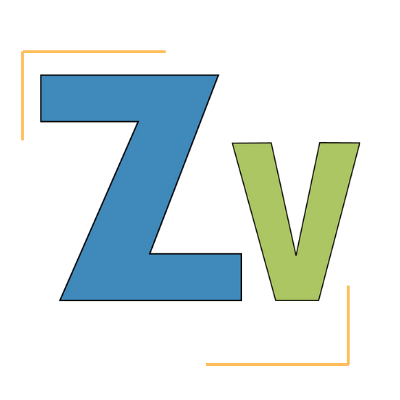The PMP Exam and PMBOK 8: What You Need to Know About the 2026 Changes
The Project Management Professional (PMP) certification continues to be a critical milestone for project managers looking to validate their skills and advance their careers. Administered by the Project Management Institute (PMI), the PMP exam is periodically updated to reflect changes in the profession and new industry standards. The upcoming eighth edition of the PMBOK® Guide (Project Management Body of Knowledge) signals a fresh wave of updates that will be incorporated into the PMP exam in 2026. This web post will explain the PMP exam content based on PMBOK 8, highlight key changes, and provide practical tips on how to prepare effectively in this evolving landscape.
What is the PMBOK Guide?
The PMBOK Guide is PMI’s foundational publication that consolidates best practices, processes, tools, and techniques for effective project management. The guide has long served as a vital resource for PMP aspirants by providing a structured framework upon which the exam is based. The eighth edition represents a significant evolution with a greater emphasis on value delivery, adaptability, and real-world application.
Overview of the PMP Exam Content Based on PMBOK 8
The PMP exam covers three core domains as defined in the 2026 exam content outline, mapped closely with the PMBOK 8 framework:
-
Performance Domains: These domains represent groups of related activities critical to successful project delivery in any environment.
-
Enablers: Specific actions and tasks supporting the achievement of performance domain outcomes.
-
Tailoring Considerations: Adaptive choices reflecting project types, complexity, and organizational context.
The five updated performance domains include:
-
Stakeholder Performance Domain
-
Focuses on engaging stakeholders effectively. Builds strong collaboration and communication channels.
-
-
Team Performance Domain
-
Emphasizes leadership, motivation, conflict resolution, and team-building skills.
-
-
Development Approach and Lifecycle Performance Domain
-
Concentrates on selecting and tailoring appropriate project methodologies (predictive, agile, hybrid, iterative).
-
-
Planning Performance Domain
-
Focuses on strategic planning, goal setting, risk assessment, and contingency plans.
-
-
Project Work Performance Domain
-
Covers the execution, monitoring, and delivery of project outputs aligned to objectives.
-
What’s New with PMBOK 8 Affecting the PMP Exam?
PMBOK 8 moves away from strictly defined knowledge areas and process groups toward a more flexible, principle-driven framework. Here are some important updates and how they impact the exam content:
-
Principle-Centered Framework
-
PMBOK 8 introduces 12 principles guiding effective project management practices regardless of industry or method. Candidates must internalize concepts like stewardship, collaboration, and value delivery.
-
-
Increased Agile & Hybrid Focus
-
The guide acknowledges that most modern projects use varied or blended methodologies. Agile and hybrid models receive even more attention with practical examples, expanding their representation on the exam.
-
-
Value Delivery
-
A significant shift centers on delivering measurable value to organizations through projects. Questions will assess your ability to align project goals with strategic business objectives and measure benefits realization.
-
-
Broader Tailoring Guidance
-
The importance of customizing project approaches based on context is emphasized. The exam will test your knowledge of tailoring frameworks, tools, and communication styles for different project environments.
-
-
Expanded Digital and Data-Driven Techniques
-
PMBOK 8 integrates digital tools, data analytics, and automation as vital components of modern project delivery. Expect exam questions on real-time data dashboards, AI-supported risk management, and collaboration platforms.
-
Preparing for the 2026 PMP Exam: Key Study Tips
-
Get Familiar with the 12 PMP Principles
-
Study each principle and understand how it influences project decision-making and stakeholder engagement.
-
-
Deepen Agile and Hybrid Methodologies Knowledge
-
Review Agile Practice Guide alongside PMBOK 8. Practice applying these approaches in various project contexts.
-
-
Focus on Value and Outcome-Based Questions
-
Prepare for situational questions that require analyzing business outcomes, project benefits, and strategic alignment.
-
-
Master Tailoring Techniques
-
Know how to adapt project management practices depending on complexity, culture, and organizational needs.
-
-
Leverage Updated PMP Exam Content Outline and PMI Resources
-
Download and review the latest PMP exam content outline from PMI. Use their practice exams that reflect PMBOK 8 content.
-
-
Engage in Interactive Training and Study Groups
-
Join expert-led bootcamps and forums to discuss real-world scenarios and sharpen practical application skills.
-
-
Practice Scenario and Simulation Questions
-
The exam will feature more situational judgment questions that test your ability to handle project issues dynamically.
-
Conclusion
The PMP exam is evolving to stay relevant in a rapidly transforming project management landscape, reflected in the release of PMBOK 8. This new guide prioritizes principles, adaptability, and delivering organizational value—core themes that will shape the 2026 PMP exam. Aspiring PMPs should study these principles deeply while expanding their knowledge of agile, hybrid, and digital project management practices. Leveraging updated resources, scenario-based preparation, and expert training will position you for success.
ZillionVenture’s PMP Bootcamp and advanced preparatory courses are meticulously aligned with the 2026 exam updates and PMBOK 8 to provide a comprehensive learning journey. Whether you’re a first-time candidate or renewing your certification, staying ahead of these changes ensures your PMP credential remains a powerful asset in your career.




